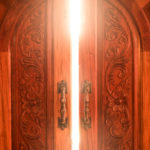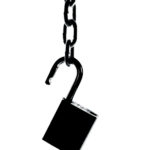-
I am the Living One; I was dead, and now look, I am alive for ever and ever! And I hold the keys of death and Hades.
-Revelation 1:18
Israel prayed for a Messiah, but God arrived.
They yearned for freedom from Rome, but He offered them deliverance from themselves.
They looked for a new kingdom, but the King came to claim their hearts.
The man Jesus embodied all the fullness of God. They just didn’t know it. Had His followers known, they would have been more saddened at His suffering, but less devastated by His death. On Golgotha, they witnessed a holy sacrifice. As the perfect Lamb offered Himself for their sins, they grieved, dreams in tatters, thinking they witnessed an execution. All they knew was that the man who they believed would redeem Israel was dead. Death had destroyed their hope. And there was no returning from the dead.
For the three long days Jesus’ body lay in the tomb, they wallowed in the finality of their despair, sure all was lost and they, too, would be killed. Even life without Him would be pointless. The darkness in their hearts was magnified by the emptiness.
The day for which Heaven had long waited finally dawned, and with it came a stunning realization for the disciples. Jesus was alive. He who was dead had risen from the grave. He was not the vanquished, but the conqueror.
The understanding came in waves as doubt melted into shock and joy and worship.
In the strength of that knowledge, empowered by the Holy Spirit, the disciples fearlessly proclaimed what they had seen and heard. They gladly suffered and died for His name, certain, now, that pain and physical death were temporary conditions. They turned the world upside down with the joyous news.
This Easter, the tomb is still empty. He is risen, and He holds the keys to death and the grave. Those who believe in His name have been released from the power of sin and given this same life. We live in the strength of this revelation. He is Lord. He is King. He is the eternal God. He is the Living One.
He is risen, indeed!
-
If you loved Me, you would have rejoiced because I go to the Father, for the Father is greater than I.
– John 14:28
Nuclear reaction:
A process, such as fission, fusion, or radioactive decay, in which the structure of an atomic nucleus is altered through release of energy or mass or by being broken apart. **
Nothing inspires as much collective societal angst as the sight of an atomic bomb exploding.
We know from history the release of energy derived from the splitting of an atom has the power to level a city, vaporize its inhabitants, and bring nations to their knees. We’ve seen the footage of an atomic bomb blasting into the sky and over the land.
Rewind the video. Imagine all that explosive force and power being compressed into one atom. Or one cell.
Or one body.
The declaration of Jesus in John 14:28 was not He was less than His Father in quality. He was less in quantity. In His incarnation, the all-powerful Word was compressed into a single organism, limited to time and space, constrained by the boundaries created by living in a body of flesh in a finite dimension. He only had two hands and two feet. He got tired, frustrated, and hungry. He could only be in one place at a time. It was in this vessel God lived and suffered and conquered the curse for us.
Jesus could have stopped the process at any time. He could have returned to heaven and left us lost. His obedience opened the floodgates of life to us. Like Him, we are called to humble ourselves so that others may live.
How can we better serve our Lord?
Acknowledge the boundless love that drove Christ to limit Himself for us.
Have this attitude in yourselves which was also in Christ Jesus, who although He existed in the form of God did not regard equality with God a thing to be grasped, but emptied Himself, taking the form of a bondservant, and being made in the likeness of men. Being found in appearance as a man, He humbled Himself by becoming obedient to the pint of death, even death on a cross.
– Philippians 2:5-8
Surrender to our limitations, as Christ submitted to His.
Therefore humble yourself under the mighty hand of God, that He may exult you at the proper time, casting all your anxiety on Him, because He cares for you.
-1 Peter 5:6
Commit ourselves to His path.
It is enough for the disciple that he become like his teacher, and the slave like his master.
– Matthew 10:25
It is enough to be like Him. To accomplish this, we surrender to living out of His purpose for us, revealed in bodies of flesh, tied to the limits of this space in time. We see what He endured for us and cry, “Lord, I am content with the situation in which you have placed me, for this is the path You have walked before me. If You are better glorified by this, I am blessed.”
**The American Heritage® Science Dictionary
Copyright © 2002. Published by Houghton Mifflin. All rights reserved. -
Now faith is the reality of what is hoped for, the proof of what is not seen. For our ancestors won God’s approval by it.
– Hebrews 11:1 (HCSB)
Ever feel like a failure?
I do, and often. My desk overflows with a never-ending pile of unfinished work. My job as a fulltime caregiver is a challenging one. It never feels like I’m smart enough, talented enough, strong enough, or Christian enough to run the race placed before me each day. I know my faith isn’t based on works, but I can add a hearty “amen” to Paul’s letter to the Romans in which he confesses to the warfare in his soul. Maybe it’s just that misery loves company, but it’s comforting to know I’m not alone in my predisposition to miss the mark. The Bible is filled with examples:
Noah obeyed the voice of God and preserved the entire world but couldn’t hold his liquor.
Abraham trusted God enough to leave his home for Canaan but fled to Egypt during a famine.
Sarah had a miracle child but caused a long line of family problems with her unbelief.
Rahab hid Israel’s spies from their enemies but had a checkered past.
Elijah brought down 400 prophets of Baal but was afraid of one woman.
Jacob wrestled with God but feared his brother Esau.
David killed Goliath but hid from Saul. Even worse, he committed adultery and arranged the murder of one of his loyal soldiers so he could have the man’s wife.
Samson was consecrated to God but fell prisoner to the temptations of a girlfriend.
We know these stories. We know the heroes of Scripture had feet of clay. They made some terrible mistakes.
While their exploits are listed in Hebrews 11, their failings are noticeably missing.
Instead, God lists the things they did “by faith.”
By faith they “conquered kingdoms, administered justice, obtained promises, shut the mouths of lions, quenched the raging of fire, escaped the edge of the sword, gained strength after being weak, became mighty in battle, and put foreign armies to flight.” (Hebrews 11:33-35) Some were brought back to life from the dead, some were tortured, mocked, scourged, and imprisoned. Others were stoned, sawn in two, or killed by the sword. And some spent their lives destitute and mistreated for their obedience to God.
These were men and women, utterly human but divinely appointed, of whom “the world was not worthy.” (Hebrews 11:38) The writer of Hebrews assures us who follow in their footsteps that we are part of the great chain of faith, approved by God because we are His children. His sacrifice has cleansed us; His Spirit empowers us to accomplish all He asks of us.
God knew before I was born that I wouldn’t be smart enough, talented enough, strong enough, or Christian enough to run the race He would set before me. No one is. That’s why God offers grace to humanity.
Grace isn’t a license to stray from the path to life, but a gift making the journey possible.
Like Noah, we may have feet of clay, but we have found favor in the eyes of the Lord. (Genesis 6:8) Our best will never be enough, but God’s is.
-
Thus Noah did; according to all that God had commanded him, so he did.
– Genesis 6:22
Noah had already lived much of his life when God called him to build the ark.
He was not a young man when the fate of humanity was placed upon his shoulders. It was a fearful assignment, an overwhelming duty. What God had told him in secret, he spent decades building in obedience to His word.
We don’t know how much help, if any, Noah had building the massive ship. He certainly didn’t have power tools or a Home Depot nearby stocked with precut gopher wood and nails. There would be no hamburger drive-thru for him to pick up a quick lunch on a long day. There wasn’t even a hot tub in which to soak his old bones each evening.
How impossible the task must have been, this thing that lay so heavily on Noah’s heart. How crazy he must have appeared to his neighbors and friends. How very alone he must have felt.
There must have been many dark days when doubt raged, and he questioned his own ability to go on. The temptation to quit must have been very strong.
But Noah knew one thing. He knew what God had told him to do. He knew he had to expend every fiber of his being in obedience, trusting God would give him the strength to finish. Nothing else mattered except that the last nail was pounded into the wood, humanity’s preservation complete.
Thousands of years later, another carpenter walked the earth.
His directive from God was much the same. Like Noah, His job would be a lonely one. There would be no relief from the duty, no release from the burden, no call from heaven to stop the judgment about to fall.
When the last nail was in place, humanity’s salvation complete, He cried, “It is finished.”
This is the greater ark, a permanent rescue and safe landing in a new heaven and earth. It is the one-way ride to eternal life through the sacrifice of the Lord Jesus Christ. As the storm clouds gather around us, as the forces of destruction assemble before us, the door to deliverance stands open to anyone who wants to enter.
But this door will not remain open forever.
Noah’s friends and neighbors must have mocked him as he and his family made the last step of obedience and entered the ark. For a week, the little group waited inside, while God allowed one more chance for others to join them. As the door stood open, the world danced and ate and drank and caroused and wasted their chance to live. Then God closed the door behind Noah and his family, and judgment fell.
A greater judgment is coming soon, more fearsome than anything we have ever known. Society laughs at Christ as she dances on her own grave. Her world is about to fall, but she seems not to care salvation awaits with its door wide open, a door God will close suddenly, in an hour of His choosing.
As followers of Christ, we can’t know the hour or day of His return.
But we can show others the door.
-
How much more will the blood of Christ, who through the eternal Spirit offered Himself without blemish to God, cleanse your conscience from dead works to serve the living God?
– Hebrews 9:14
Two spies lay hidden in darkness as the king’s men searched for them in the night.
Word of their presence in the city had reached the king of Jericho, and soon his men were at the door. The prostitute who lived there saved the men’s lives, but not before securing a promise from them to spare her and her family when they returned with Israel’s army to conquer the city.
Before being lowered out of her window to safety, the men gave her a piece of scarlet cord. They instructed her to gather her family together in the house on the day of their return and hang the scarlet cord in the same window. Since her house sat on the wall of the city, the cord would be seen, and her house spared. Rahab obeyed, and her faith saved her entire family from destruction by God on the day the city fell.
The scarlet cord seems like such a small detail in the account of the fall of Jericho, yet it depicts a theme woven throughout the Scriptures.
In Leviticus 14:4-6, the ceremonial cleansing of a person healed of leprosy included dipping a scarlet thread and cedar and hyssop seven times in the blood of a sacrificial bird and sprinkling it on him. A live bird was also dipped in the blood and released, symbolizing the person’s release from bondage to uncleanness. This person was now free to worship and fellowship with others, a beautiful symbol of our release from sin.
Moses and Aaron were commanded to burn cedar wood, hyssop, and scarlet material along with the red heifer to produce the ashes needed for Israel’s purification from sin, as outlined in Numbers 19:1-9.
The blood of animals and red thread can never make us clean from our sins.
But these Old Testament symbols spoke of the greater sacrifice to come. Genesis 38:27-30 relates the account of the twins born to Judah by his daughter-in-law, Tamar. Because birthright belonged to the firstborn, a scarlet thread was tied on the arm of the infant Zerah as he began to emerge from the womb. But he withdrew his arm and the other son emerged first. This son was named Perez, or “breach,” because his birth caused a division between the two of them.
Jesus, a descendent of Perez, was declared the Son of God at His first coming. We are told in Scriptures He is the second Adam, the first having lost his birthright by sin. His birth created a breach in humanity. But for all who hang the scarlet thread of salvation in the window of their souls will be saved.
Zerah means “dawning” or “brightness.” At the birth of John the Baptist, his father Zacharias prophesied about him and the One before whom he came:
To give His people knowledge of salvation through the forgiveness of their sins.
Because of our God’s merciful compassion, the Dawn from on high will visit us
to shine on those who live in darkness and the shadow of death,
to guide our feet into the way of peace.
– Luke 1:77-79 (Holman Christian Standard Bible)
In the sacrifice and resurrection of Jesus Christ, all who accept God have seen a new dawn and will shine in the kingdom of our Lord. (Matthew 13:58)
In the poetic verse of Song of Solomon 4:3, the bridegroom tells this to his bride: Your lips are like a scarlet thread, and your mouth is lovely. If the scarlet thread is symbolic of redemption, this verse speaks to the beauty of those who proclaim His salvation and testify to His redemption in their lives.
And how can they preach unless they are sent? As it is written: How beautiful are the feet of those who announce the gospel of good things!
– Romans 10:15 (Holman Christian Standard Bible)
-
Then the LORD said to Noah, ‘Enter the ark, you and all your household, for you alone I have seen to be righteous before Me in this time.’
– Genesis 7:1
The Bible paints a picture of the days prior to Noah’s flood as one of a generation lost.
In a world filled with wickedness, only Noah was left to follow God. If the flood was the judgment for evil, and Enoch was translated before the wrath of God came upon earth, who does Noah represent in the Matthew 24 timeline?
We often forget Jesus first came to the people of Israel, His chosen and beloved nation.
He answered and said, ‘I was sent only to the lost sheep of the house of Israel.
– Matthew 15:24
But the house of Israel rejected their Savior, and so He turned to the Gentiles.
He came to His own, and those who were His own did not receive Him. But as many as received Him, to them He gave the right to become children of God, even to those who believe in His name.
– John 1:11-12
For the last 2,000 years, we have been living in the age of grace.
The doors of heaven flung wide open to all, Jew or Gentile, to escape the judgment to come and enjoy eternity with God.
But those doors will close one day soon. Remember the Scripture in Genesis in which God warned His Spirit will not pursue mankind forever? There is an end to His patience when evil has overtaken society and all who will hear His call have responded.
Noah and his family represent those who are saved during the coming judgment on earth by fire. They symbolize the nation of Israel, who will be brought to belief the Messiah Jesus Christ, along with those who accept Him as Savior during the seven years of trial upon the earth. They will be carried through a time of terrible suffering to the deliverance of their souls.
The rest of humanity who reject Him will be destroyed in the tribulation of those days and face an eternal judgment.
In the well-known and often-debated passages of Matthew 24, Jesus responds to the question, “Tell us, when will these things happen, and what will be the sign of Your coming, and of the end of the age?” In answer, Christ addresses the events just preceding His Second Coming of Christ in all His glory, the coming about which John prophesied in Revelation 19:11-21. In Matthew 24, Jesus is addressing the nation of Israel, those believers converted during the seven years of tribulation, and an unbelieving world. The Bride of Christ will already be gone, translated like Enoch to heaven.
The reference regarding “one will be taken and one will be left” in Matthew 24:40-41 is, in context, relating to being taken in judgment and is not a reference to the Rapture.
The Biblical account of Noah’s Flood gives us a startlingly graphic picture of what is coming at the end of the age. Its message is urgent and sobering. God will cleanse His creation and make all things new. He will bind up wickedness and destroy the wicked. He has waited a long time for that day, but He won’t wait forever.
Where are you in this place in time? What do you believe?
-
By faith Enoch was taken up so that he did not see death. He could not be found, because God had taken him away. For before he was taken, he was commended as one who pleased God.
– Hebrews 11:5 (Berean Study Bible)
The Enoch Generation
A discussion of Noah’s flood as it speaks to conditions at the end times often addresses two groups of people living on the earth when God sent the judgment:
- Noah and his family, the only righteous people left on the planet
- The rest of the world, judged to be wicked
This sobering picture portrays believers, represented by the family of Noah, riding out the storm in the ark while those who refused deliverance are destroyed in a catastrophic flood. The ark symbolizes salvation offered by Christ.
This picture is called a “type,” or foreshadowing, of New Testament events played out in Old Testament symbolism. This device is validated by Paul in Romans 5:14 when he tells us Adam was a type of Christ.
Noah and the ark present a beautiful picture of the salvation we have in Christ. But if we simply insert that picture into Matthew 24, it appears Noah represents the Church, and the Flood represents overwhelming judgment upon the unbelievers. This is misleading.
In this picture, a very important historical figure is quite literally missing: Enoch.
Enoch was the great-grandfather of Noah and the father of Methuselah, whose name means, “His death shall bring.” The year Methuselah died was the year of the Flood. Methuselah represents the mercy and long-suffering of God in the face of wickedness.
Enoch and Noah are the only two men in Scripture of whom it is said, He walked with God. We read in Hebrews 11:5 that Enoch pleased God, the only one besides Jesus Christ of whom this is spoken in Scriptures. In Jude 1:14-15 we learn Enoch prophesied about the return of Christ to execute judgment. And in Genesis 5:22-24, we read this:
Then Enoch walked with God three hundred years after he became the father of Methuselah, and he had other sons and daughters. So all the days of Enoch were three hundred and sixty-five years. Enoch walked with God, and he was not, for God took him.
Enoch walked with God, prophesied to others about the coming of the Lord in glory, and pleased God. He did not see death but was translated to be with God before the coming of judgment.
Enoch was “snatched away,” or raptured. He represents the Church, the one who escapes the wrath to come, translated and taken by God before judgment in the last days.
-
Then the LORD saw that the wickedness of man was great on the earth, and that every intent of the thoughts of his heart was only evil continually.
– Genesis 6:5
Theories abound on the timing and manner of the return of Jesus Christ.
It’s not hard to find Scriptures to support opposing viewpoints, and even those honestly searching the Scriptures to answer the question posed by the disciples in Matthew can get lost in the maze of prophecies outlined in the Old and New Testaments. There is one place we can all start, though.
Jesus warned us in Matthew 24:36 that no one knows the hour or day of His Second Coming in glory. He did tell us, however, that His coming would be “just like the days of Noah.” Although He was specifically speaking of the suddenness of His return, He pointed us to the conditions of the world before the first big judgment, the flood.
What preceded the worldwide destruction of the flood?
The explosion of population as the human race “multiplied.”
Whether the “sons of God” that married the “daughters of men” were fallen angels or fallen followers of the Lord is debatable, but the passage speaks to the perversion of the Biblical model of marriage.
The fullness of evil, expressed not just in actions but in the thought life of humanity.
God was so grieved by the wickedness in the world, He regretted creating mankind. The Ten Commandments that would come later addressed the outward actions of men, but this passage in Genesis reveals what Jesus told us at His first coming: We are defiled first by what we think.
An earth filled with violence and corruption.
God’s lament in Genesis 6 shows a world harvest of evil had come to fruition. Ecclesiastes 1:18 tells us that “in much wisdom there is much grief, and increasing knowledge results in increasing pain.” Because God is all-seeing and all-knowing, He was tormented by the knowledge of every horrific act and by every perverted thought in the mind of His creation.
God’s warning that the door to grace would soon close.
God warned in Genesis 6:3, “My Spirit shall not strive with man forever, because he also is flesh; nevertheless his days shall be one hundred and twenty years.” This verse is sometimes interpreted to mean that the lifespan of humans would be shortened from the much longer time they had enjoyed prior to the flood. But in context it would more appropriately refer to the 120 years Enoch and Noah preached repentance to that generation, especially in light of 1 Peter 3:20, 2 Peter 2:5, and Jude 14.
It’s not hard to see parallels between the world just preceding the flood and the world preceding Christ’s Second Coming. While some elements of the fallen world are ever-present, these conditions—when considered with other pertinent prophetic events on the horizon today—would lead us to believe our Lord is “at the door.”
-
100% Legal. 100% Free.
All free downloads offered with permission from the artist, content creator, and/or label.
-
[In the coming weeks, Slightly Obsessed will explore the Scriptures regarding end-time events and what Jesus meant when He said the coming of the Son of Man will be “just like the days of Noah.”]
Therefore be on the alert, for you do not know which day your Lord is coming.
– Matthew 24:42
A small walkie talkie sits at its charging station in our kitchen.
It’s always on because we are part of a volunteer fire department in our rural community. Our area is at high risk for wildfires during the summer and fall months, and we live miles away from the nearest fire stations. Because of the likelihood of fire, our community finally built its own fire house, purchased a fire truck, and trained volunteers to protect our property.
Our system is linked with the local county sheriff’s department, and we’re always on call, should the alarm come to assist a neighbor. We don’t know when the next fire is coming, or if we’ll even be needed. But we’re always on the alert.
Deep within the soul of each true believer in Christ is the knowledge we are made for more than the brief years we walk upon this earth. Our great hope as followers of the Lord Jesus is the promise of resurrection to live in eternity with God.
The New Testament Scriptures are permeated with a sense of urgency.
The early disciples clearly believed the return of Christ was imminent. Although God alone knows the timing of the course of His plan as it is played out on the world stage, He has commanded us, “Be ready; for the Son of Man is coming at an hour when you do not think He will.” (Matthew 24:44)
We live in an age of great uncertainty. Radical changes in the political environment of nations and a sense we are hurtling toward some catastrophic worldwide event has sparked new interest in end-time prophecy. Today online conspiracy theories abound, along with well-meaning but misguided predictions. When it comes to eschatology, the study of last or final events, are you pre-trib, mid-trib, post-trib, premillennial, postmillennial, amillennial, or just plain confused?
It’s tempting to relegate the debate over Jesus’ coming to the Bible scholars. It seems like pointless arguing when there are so many urgent things the Church could be doing.
But as we’ll see in the next weeks, what we believe about the last days and Christ’s soon return is crucial to how we live every day. Because we can’t know what day He’s coming, we are commanded to be always ready.
Together, let’s find out why.
Next Week: Like the Days of Noah, Part 2
-
But you are a chosen people, a royal priesthood, a holy nation, a people for God’s own possession, to proclaim the virtues of Him who called you out of darkness into His marvelous light.
– Peter 2:9 (Berean Study Bible)
They march. They curse, rant, and riot. They spew their rage all over social media.
The political climate has been tumultuous since the recent election. Some folks don’t like the results of the election, and unlike years past, can’t seem to get past it. They can’t move on. They are obsessed with protesting the loss.
Although the title of this weekly series is “Slightly Obsessed,” humans rarely get a little obsessed about anything. We either love it or hate it. And we have a national compulsion to share why. To be obsessed with a thing is to be consumed by it, to have our thoughts and actions dictated by constant and commanding thoughts about the object of our passion.
What possesses us, changes us.
It tells others more about who we are than anything we can say, sing, rant, or tweet. Talk is cheap. We can march all day for justice, but if we’re so possessed by anger we trash an innocent person’s business, justice is not the message he hears. Assaulting others with our attitudes, no matter how justified in our own eyes, is still assault. Vulgarity and self-righteous pride only reveal the ugliness lurking our own hearts.
Jesus tells us this in Luke 6:45:
The good man out of the good treasure of his heart brings forth what is good; and the evil man out of the evil treasure brings forth what is evil; for his mouth speaks from that which fills his heart.
We’re all obsessed about something. It might be movies, food, politics, or germs. What fills your heart today? What is your treasure? Who owns you?
I want to be a woman possessed by the Spirit of the living God. I pray my heart is so filled with Jesus that my mouth overflows always with His praise. I yearn to speak words anointed with His grace and truth, my brokenness revealing His beauty like the fragrance from a crushed flower.
I pray this for you, as well. May the Spirit of God fill you with the power to withstand this evil age and live in hope of eternity. May God possess your thoughts. May the treasure of your heart overflow to reveal salvation and joy and a magnificent obsession for all that is good.
May you be addicted to the Lord Jesus Christ, fully possessed, and more than slightly obsessed with the kingdom to come.
-
The LORD will fight for you while you keep silent.
– Exodus 14:14
I sat on the bed, heart in shreds.
An accusation had been hurled at me on social media, again, by the same person. Everything in me fought to defend myself against the lies.
Deep inside, though, I knew it was a trap. I could never convince the attacker of my innocence, and it would only draw me farther into a toxic situation. I had already cried many nights over it. I could not fix this, and that hurt.
Then there was a quiet knock on the bedroom door. My daughter slipped softly into the room.
“May I pray for you?” she asked.
Relief washed over me. “Yes,” I said. A thousand times yes, my soul echoed.
She climbed onto the tall old cannonball bed that once belonged to my Ozark grandmother, Bertha Blossom Griggs, whose iron will conquered many hardships. Nanny Griggs endured a hard life as a sharecropper in the South, the loss of a stillborn daughter, the fire that destroyed their home and the store they managed, and the death of her husband.
Nanny knew she had to pick her battles to survive. She told me years ago, “I don’t care what people say about me. When they’re talking about me, they’re giving somebody else a rest.”
I had been giving someone else a lot of rest lately.
My daughter folded her long, slender legs under her at the foot of the bed and bent forward in earnest prayer. Tears filled my eyes at her gentle intercession. Four words especially grabbed my attention, a plea for God to help me shut out the lies.
Bingo. Shut out the lies.
There, in my head, raged the battle that sapped my mental energy and hijacked my emotions. It kept me demoralized and under the finger of the accuser, who by the way, was not the person flinging the mud, but Satan. The devil, my real enemy, was trying to steal my praise and my time and my heart.
I breathed a grateful thank-you to my tender daughter for seeing my distress and helping me cut through the deception. She and the rest of my family spoke the truth I needed to hear. The situation may never be resolved, but I’m no longer listening to the lies.
Maybe you have been under attack lately. Perhaps you struggle to make sense of the accusations, fearing they may be rooted in truth. It’s a good idea to test them against the Word of God and listen for the conviction of the Holy Spirit. If God and those we trust do not confirm any sin, then we can shut out the lies and be glad we’re giving somebody else a rest.
For the eyes of the LORD move to and fro throughout the earth that He may strongly support those whose heart is completely His.
– 2 Chronicles 16:9
-
Your Word is a lamp to my feet
And a light to my path.
– Psalm 119:105
The sky hung heavy and gray as I drove my daughter down the long river road to town for her piano lesson.
Our valley rarely sees much snow most winters, so I didn’t worry about the weather. The highway was dry and clear on the drive into town. As we finished our chores and prepared to drive back home, a few fat snowflakes danced around us in the growing dusk.
Nothing to worry about. We’d be home soon enough.
The pretty little whirls of flakes soon grew to a flurry. I straightened a bit in the driver’s seat and watched the road more carefully.
Nothing to worry about. We’d be home soon enough.
The flurry grew heavier until it blanketed the highway, obliterating the painted lines. A few miles from home, the storm became a white-out in the dark. The landscape disappeared behind a thick veil of white. I couldn’t see the road or even the guardrails.
Now I was worried. I clutched the steering wheel and peered into the blowing snow. Where was I? Was I still on my side of the road? How far was I from home? To make things worse, a car followed slowly behind me, trusting me to blaze the trail. Together we inched along the highway, the blind leading the blind through a holocaust of white.
My nerves got the best of me, and I began to cry.
I had already been praying as we fought to stay on the road. Then I saw a distant light that had to be from a neighbor’s house, and it occurred to me that I could “read” the road by watching the house lights. In the sparsely settled countryside, each house became a beacon to lead me home through the bewildering storm.
One by one, I found the lights belonging to each house along the highway as we came upon it. I still didn’t know if I was on the right side, left side, middle, or shoulder of the road, but with no other cars coming, it didn’t really matter. As long as we didn’t hit anyone or roll down a bank, we were okay.
We finally made it home that night, not so much because we knew the way, but because we were led by the lights.
Has a flurry of trials covered your path with an avalanche of heartache? Have you lost your way? Look for the Light. God’s Word will illuminate the way for you, give you the landmarks and boundaries to guide you through the worst of storms, and lead you safely home.
Don’t despair, even in the storm. You’re going to make it.
-
And He who sits on the throne said, ‘Behold, I am making all things new.’
– Revelation 21:5
It’s all a blur in my head, the snippet of a memory more than fifty years back.
I couldn’t have been more than five and my little brother was two or three.
Christmas came late and all at once at our house. Decorations were sparse in the weeks leading up to Christmas, and no tree adorned the house until Christmas morning. Every Christmas, we awakened to a fully decorated tree, dancing with lights and shimmering icicles in the early morning darkness. Under it lay our gifts, hand-delivered by Santa himself. It was a miracle.
Like most children on Christmas morning, my brother and I awakened before our folks and raced to the dining room of our little house. Sure enough, Santa had arrived sometime in the night with our gifts and THE TREE.
THE TREE was the most beautiful thing I had ever seen. We were transfixed momentarily by the wonder of it all. My brother danced around it in joy. I just had to hug it.
In my enthusiasm, I hugged it too hard. It lunged toward me, then past me, and crashed to the floor. Glass shattered everywhere.
THE TREE, the beautiful, magical tree, lay dead on the floor.
The commotion awakened our folks, who came rushing into the dining room to find me wailing. I had broken Christmas. I was inconsolable. My little brother just stood there, stunned by the magnitude of my transgression. The fall of Rome could have hardly been less traumatic.
My parents comforted me and righted the tree again. I don’t remember anything else about that day, not opening presents or eating Christmas dinner or playing with my gifts. Only my unintentional tree-hugging disaster is burned into my memory.
I’ve broken other Christmases since then, in other ways. Sometimes it’s my frustrations with situations happening around me that I can’t fix. Many times, I work too hard and get tired and irritable with my family. Sometimes, I just can’t shake the sadness of the year’s heartaches enough to rejoice in the season. I focus on my failures and forget all the reasons to celebrate.
Sometimes, I still feel like wailing.
That’s when my Father comes to my rescue. He never rebukes me for my failures. Instead, He comforts me and reminds me it’s all fixable. He is, after all, the Redeemer of the broken, the one who makes all things new.
He also brings a new perspective to our failures. Years from now, what will we remember about our lives? Will we waste His grace reliving our mistakes?
Or will we choose to live in joy, celebrating the gifts the Father has given so freely?
-
Matthew 9:20-22; Mark 5:25-34; Luke 8:43-48
Daughter, take courage; your faith has made you well.
– Matthew 9:22
The twelve-year-old daughter of an important synagogue ruler named Jairus lay dying.
Jairus entreated Jesus to come and heal her. As Jesus walked to the man’s house, the crowds pressed against him on every side. The word used in the Scriptures here for “pressed” is more literally translated “choked.” The people who needed healing were so desperate they nearly choked Jesus in their eagerness to get His attention.
In the crowd was a woman who, ironically, had been ill with a bloody hemorrhage the entire twelve years Jairus’ daughter had been alive. More than mere inconvenience, a discharge of this length of time had surely made her weak and sickly. Considered ritually unclean and unable to enter the Temple to worship the Lord according to Levitical law (Leviticus 15:25-27), anything she sat on or lay on was unclean, and anyone who touched her would also be unclean.
Desperate to be well, she tried many physicians over the years. They only made her worse and took all her money.
On the day she encountered Jesus on the way to the house of Jairus, this woman was completely broken. She was sick, outcast, and destitute.
Then she found Jesus.
Israelites were instructed in Deuteronomy 22:12 to make tassels, or tzitziyot, and sew them into the corners of their garments. Numbers 15:38-40 explained the purpose of these tassels:
To look at and remember all the commandments of the LORD, so as to do them and not follow after your own heart and your own eyes…so that you may remember to do all My commandments and be holy to your God.
In Jesus’ day, the tassels were sewn into the corners of their prayer shawls. They represented the authority of God and His holiness. The sick woman knew touching Jesus would make Him unclean under Levitical law. But she reasoned if she only touched the fringe or tassels on His outer garment, she would be made whole.
The crowd around her pressed against Jesus with their demands, unmoved by His majesty, untouched by His claims upon their lives. She alone, the unclean outcast, reached out to touch the symbol of God’s holiness and authority for her healing.
She was immediately and completely healed at that moment.
Jesus did not see her touch His garment, but He felt power flow from Him. He did not chastise her for touching Him, for she could not possibly make the Lamb unclean. Instead, He called her “daughter” and sent her on her way restored.
Then Jesus went on to Jairus’ house to cure his daughter.
A crowd needed miracles.
But just two fell before the Lord in entreaty.
One a man of stature. And one an outcast.
Just two people reached Jesus.
The Bible account sends a poignant message about our attitudes toward the Lord.
May we always remember we can’t simply descend upon God with our demands and expect the response we want. He requires us to remember His majesty and reach for His holiness and authority over our lives, entreating Him in our prayers with reverence.
When we seek Jesus for who He is and not merely for what He can do for us, we reach Him. Even today, Jesus’ words speak above our desperation with the words we long to hear:
Take courage, your faith has made you well.
-
“If someone says, ‘I love God,’ and hates his brother, he is a liar, for the one who does not love his brother whom he has seen, cannot love God whom he has not seen.”
-1 John 4:20
It’s happened to me. It’s probably happened to you.
Something is said on social media. Somebody comments back. Soon a family is in turmoil and relationships are lost over what began as a difference of opinion.
Today it feels like everybody’s talking and nobody’s listening. Judging by what we read and hear, winning an argument has become more important than preserving a relationship. No one appears to care anymore if we trample others in the rush to validation.
Somewhere along the way, “I” became more important than “us.” In the process, the battle became more important than the war.
Sometimes the loudest, most vehement self-mutilation happens to the body of Christ. And yes, it’s self-mutilation, because when we hurt another Christian, we hurt ourselves.
In the backwash of a bitter election year, there is more than politics at stake. As our battered nation limps into the holidays, family members and friends who supported bitter rivals in the recent Presidential election will sit down across from each other at the dinner table. How will we treat each other? If our political leanings have poisoned us to the point we can’t have civil conversation with others, something is very wrong in our country, in our churches, and in our lives.
It is one thing to stand for truth as revealed through God’s Word.
It is quite another to rip each other to shreds over doctrinal or political differences. We can never convert people to the truth after we have destroyed them.
When you run into someone in the grocery store you can’t stand on Facebook, you have the perfect moment to exercise grace. When you are seated across from her or him at the holiday table, remember to smile. You can afford to be generous, after all, because you have both been bought with heaven’s best.
Forgive. Forget. Be as kind to others as Jesus is to you.
Love your enemies, even when they’re your family, and especially when they’re your brothers and sisters in Christ.
We need each other.
Therefore, accept one another, just as Christ also accepted us to the glory of God.
– Romans 15:7
-
For our struggle is not against flesh and blood, but against the rulers, against the powers, against the world forces of this darkness, against the spiritual forces of wickedness in the heavenly places.
– Ephesians 6:12
He was armed only with a sword purchased from a home-shopping network, a dagger, a pistol, and a pair of night-vision goggles.
He imagined God ordained him to capture Osama bin Laden. Hampered by the fact he needed dialysis for his kidneys three times a week, he decided he could use bin Laden’s dialysis machine if necessary.
Yeah, this guy was for real.
Gary Faulkner was not anything if not persistent. The drug-addled ex-con made eleven attempts to capture bin Laden, some involving actual trips to Pakistan. Gary lived an undisciplined private life. But instead of accepting the help he needed to right his personal ship, he dedicated his energies toward an unrealistic goal mistakenly attributed to God’s calling.
When sternly ordered by authorities to return to the U.S. after one attempt, he hatched a new plot to reach bin Laden in a hang glider. He launched himself off a cliff by the Dead Sea in Israel for a trial run and promptly crashed. He suffered broken ribs and a dislocated shoulder in that escapade.
His Quixotic journey did not stop bin Laden, but it did inspire a comedy starring Nicholas Cage. At least he got a movie out of the deal.
I wonder if the church doesn’t tip a bit toward the windmills at times.
Perhaps, like Gary, we hide an undisciplined life behind a list of personal ambitions we’ve stamped with God’s name.
However well-intentioned, Gary’s plans bottomed out, at least a couple of times in Vegas. It took a well-trained group of men, working together under orders and supported by the proper authorities, to take out Osama bin Laden.
Perhaps we could take the hint.
Church, do we get in God’s way when fly out on our own, thinly armed, deluded about our marching orders? Are we so determined to take out the skeptics that we push aside the voices of reason in our lives?
There is no army of one in God’s sight.
None of us are so important we don’t need fellowship and correction and direction. Especially, we need the accountability that comes with being part of a team.
Are you an army of one, or one man in a great army?
-
I pray that the fellowship of your faith may become effective through the knowledge of every good thing which is in you for Christ’s sake.
– Philemon 1:6
Can you catch epignosis from your friends?
It depends on who your friends are.
It sounds like the name of a disease you might pick up in a barnyard or from eating undercooked pork, but epignosis is a good thing. It’s a Greek word meaning precise or accurate information. And in a way, you can catch it from your friends.
Or better yet, share it with your friends.
Paul’s letter to Philemon was sent in response to a difficult situation between two believers, Philemon and his slave, Onesimus. Slavery was legal and rampant in the Roman Empire. Onesimus, a non-believer, ran away from his master and was discovered by the apostle, who converted him to Christ.
Onesimus most likely felt ravaged by the injustice of slavery, while Philemon may have felt betrayed by Onesimus. Without directly addressing the legal and social ramifications, Paul sought to unite the men as new brothers in Christ.
In this intriguing letter of the Bible, Paul encourages us to look beyond our own rage at injustice to discover God’s wants to accomplish in us through our circumstances.
Paul challenged each man’s motives and sought the surrender of their wills to that of Christ.
Onesimus was charged with returning to Philemon to serve with humility. Philemon was charged to treat Onesimus as a brother instead of a slave.
Each was challenged to practice forgiveness and to relinquish his own rights to Christ and to his fellow believer.
Changed hearts changes nations.
God wanted these men of long ago to realize their relationship as brothers in Christ eclipsed their places on the societal ladder. He desired their fellowship to grow beyond mere tolerance into a deep respect and sharing of the life of Christ. He longed to bring them into epignosis, a full understanding, of all He has for those who surrender their lives to Him.
-
But as for me, my feet came close to stumbling,
My steps had almost slipped.
– Psalm 73:2
My youngest son was born this week in 1981.
We nearly lost him at birth, and I was ill for a very long time afterward. The physical crash precipitated a spiritual crisis of faith. In the long months I struggled to regain my health, I often questioned God. Our family had tried so hard to serve Him, and I didn’t understand why He allowed me to be sick. My desperate prayers seemed to reach only an iron heaven above.
For I was envious of the arrogant
As I saw the prosperity of the wicked.
They have set their mouth against the heavens,
And their tongue parades through the earth.
Surely in vain I have kept my heart pure
And washed my hands in innocence;
For I have been stricken all day long
And chastened every morning.
– Psalm 73:3, 9, 13-14
The perception that those who mocked God often lived in comfort and arrogance around me fed my resentment. In my darker moments, I wondered what difference it made to serve God. How could He pour so much goodness upon vile people and distance Himself from those who sought Him?
If I had said, ‘I will speak thus,’
Behold, I would have betrayed the generation of Your children.
– Psalm 73:15
How little I really understood my heavenly Father. How much it must have hurt Him to see such distrustful eyes in the face of His child. I grappled with the hard lessons of His sovereignty, only realizing later the far-reaching implications of my struggle. Had I rejected His work in my life, I would have sinned against God.
I would have betrayed my generation.
Those who share this space in time with us need to hear the testimony of our faith.
The unbelievers need to see salvation being worked out in me. The believers need to see victory in trial. We all need the gospel preached daily through every believer’s life. In a moment of torment, we choose to make the next breath one of praise to Him or a curse. In doing so, we choose to impart victory or betrayal to our fellow sufferers.
When I pondered to understand this,
It was troublesome in my sight
Until I came into the sanctuary of God.
– Psalm 73:16-17
Years later, as we celebrate the birthday of our wonderful son, I can see how those dark days drove me to seek God out with all my heart, to get low enough to touch the hem of His garment. In the sanctuary of surrender, listening for His voice, I finally began to comprehend the magnitude of His grace.
Today, if you’re suffering, trust in your God. Breathe in His life. Breathe out His praise. Be encouraged because your loyalty to Him speaks to a generation yearning for more.
Click Next Page to load more



















